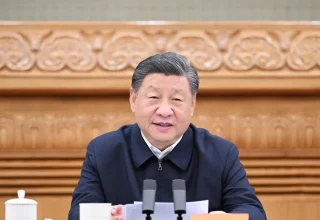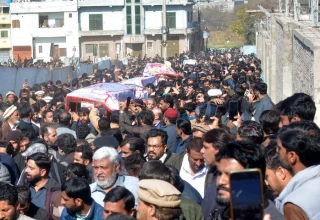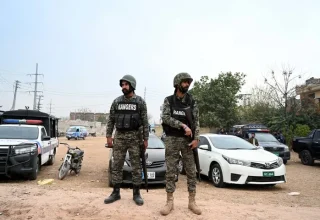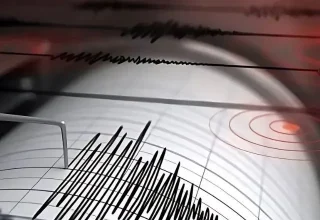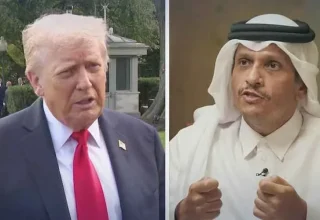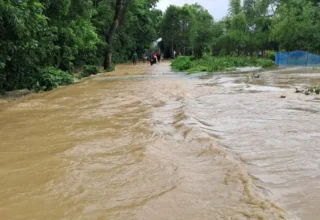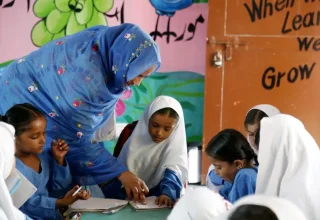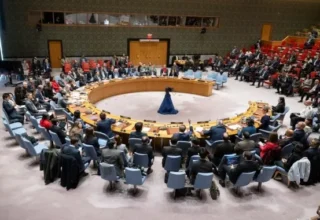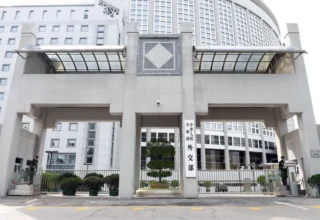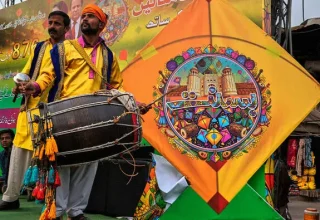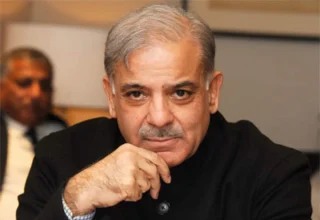
Prime Minister Shehbaz Sharif, in an address to the nation on Thursday, said the incumbent government would hand over the country’s reins to the caretaker set-up in August.
PM Shehbaz had made a similar announcement yesterday as well, in which he declared that the term of his government would end on August 14.
He, however, did not clear the confusion about whether the coalition partners would go for the normal dissolution of the National Assembly (NA) on completion of its term on August 12 or he would advise the president for an early dissolution.
The five-year term of the NA commenced under the then-PTI government on August 12, 2018 and will be completed under a PM-Shehbaz-led ruling coalition following the ouster of former premier Imran Khan through a no-confidence vote in April last year.
At the outset of an address — broadcast on television — today, the prime minister recalled that he was given the “sacred responsibility” of running the country and working for its welfare in April last year.
“We will hand over this responsibility to the caretaker set-up in August 2023.”
He recalled that the incumbent government, in just 15 months, cleaned the “rubble of destruction” caused by the PTI in the last four years.
“We cleaned the landmines spread in the way of Pakistan’s interests” and “doused the fire” that erupted because of mismanagement, inefficiency and conspiracy in running the affairs of the country, including the economy and foreign affairs, the PM said.
“This brief 1.5-year period was a journey from the darkness of hopelessness to the light of hope … it was the beginning of gaining something after losing everything … it was a journey of returning towards development from anarchy and chaos.”
The journey of the government, he continued, was that of returning to economic development and providing relief to the nation that was stricken by inflation, floods and unemployment.
“This was the journey of restoring human dignity, chastity, national self-sufficiency, media and freedom of speech.”
The premier stated that the coalition government was “one of its kind” in Pakistan’s democratic history, which was formed for the briefest of periods but faced the “toughest challenges and difficulties”.
“This government has actually set a standard and direction that despite lack of time and never-ending difficulties, the country can be steered out of crises,” he said, adding that this could only be achieved through hard work and honesty.
PM Shehbaz recalled that during the past few months, the government “sacrificed politics to protect the state”. “We did not worry about our vote bank but worried about the consistent increase in the State Bank of Pakistan.”
Talking about the IMF programme, he said the previous government had signed the deal but then violated it and pushed the country to the brink of default.
“While we were trying to restore the programme, former rulers were busy hatching anti-state conspiracies day and night.” However, PM Shehbaz asserted, despite all the roadblocks, his government did not lose hope and successfully reached an arrangement with the IMF.
“Today, the danger of Pakistan’s default and their impure wishes have been buried.”
During his address, the PM also took the opportunity to thank Pakistan’s brotherly countries such as China, Saudi Arabia and the United Arab Emirates for playing a “praise-worthy role” in bringing the country out of economic crises.
Furthermore, he appreciated the efforts of Foreign Minister Bilawal Bhutto-Zardari, Finance Minister Ishaq Dar and Army Chief Gen Asim Munir.
The premier stated that Pakistan had become habitual in taking loans, which according to him had damaged the country’s reputation and honour. “It is now time to stand on our own feet and gain our lost position.”
For this purpose, he said a comprehensive national plan had been prepared that aimed at economic restoration.
“The Special Investment Facilitation Council has started functioning and under it, paths for investment from Gulf countries in agriculture, industry, mineral, energy, IT and defence production are being paved,” the premier elaborated, adding that the federal and provincial government along with the military institutions would make these efforts successful through collective wisdom.






